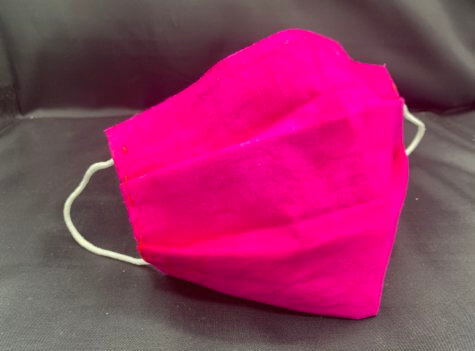
Photo by Thomas Kinto on Unsplash
DAVIS, Calif. — For people who don't like to keep boxes of disposable face masks at home, a reusable cloth covering is a popular option. While these may be comfortable and easy to wash during the coronavirus pandemic, viruses or bacteria can stick to them and spread to users when they touch their masks. Now, a team from the University of California, Davis has developed a new type of cloth that can kill these germs just by leaving it out in the sun.
Their study finds a specially treated cotton face mask can kill up to 99.9999 percent viruses with less than one hour of sunlight exposure. Typically, cloth masks filter out aerosol particles (tiny droplets) from a cough or sneeze. This is what makes them so useful in curbing the spread of COVID-19. Unfortunately, living bacteria and virus particles can attach themselves to cloth and remain contagious to anyone who touches them.

Researchers Peixin Tang, Gang Sun, and Nitin Nitin led a team to design a new cotton which releases reactive oxygen species (ROS) when hit by sunlight. ROS damages and kills microbes on surfaces.
How does face mask use sunlight to kill COVID?
The team created the antimicrobial fabric by attaching positively charged chains of 2-diethylaminoethyl chloride (DEAE-Cl) to regular cotton material. Researchers then dyed the fabric in a special solution of a negatively charged photosensitizer. This substance releases the ROS when exposed to light and attached itself to the DEAE chains through static electricity.
Study authors say cotton fabrics made using a dye called rose Bengal kills 99.9999 percent of bacteria on the surface of a mask with just 60 minutes of natural sunlight. In under 30 minutes, it also deactivates 99.9999 percent of T7 bacteriophages; a virus researchers say is more resistant to ROS than several strains of coronavirus.
The study finds these fabrics are capable of being hand-washed at least 10 times and repeatedly left in the sun for over seven days before they lose their antimicrobial strength. The UC-Davis team adds building light can also activate the ROS but they are much less intense than the sun. Cleaning a mask under indoor light will take longer for the wearer but still disinfects the cloth.
Researchers say their new invention shows promise for creating not just face masks, but reusable and antiviral clothing during the pandemic.
The study appears in the journal ACS Applied Materials & Interfaces.










